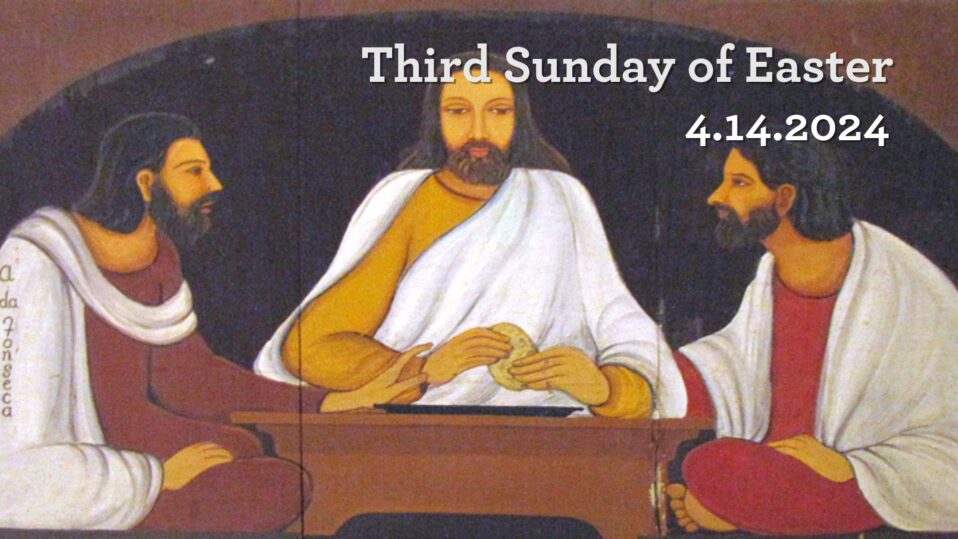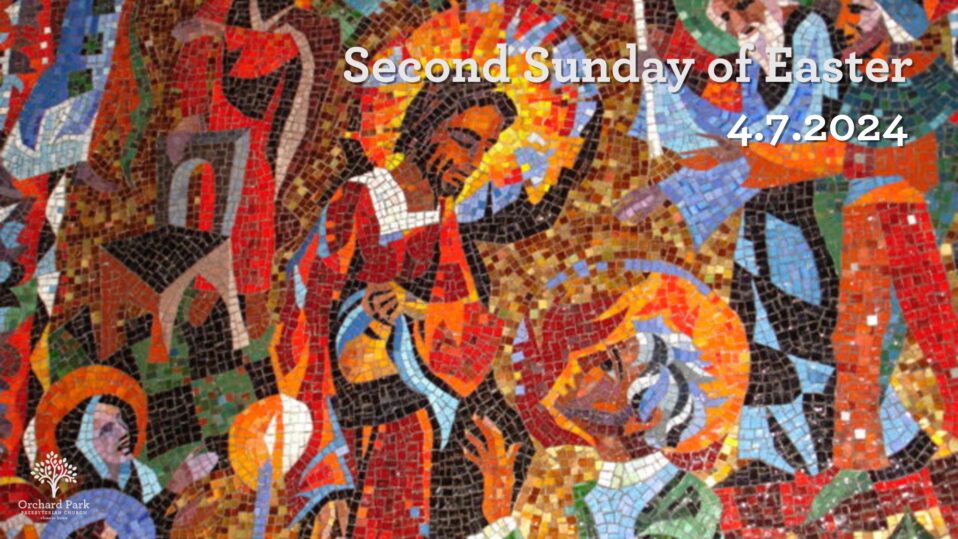This Sunday begins a seven-part sermon series on the questions Jesus asked. Jesus asked a lot of questions, 138 to be exact. He asked more questions to disciples and to the people who came to see him then they asked of him. He started almost every teaching moment and encounter with someone with a question. This begs the question, if Jesus is God incarnate, wouldn’t Jesus know the answer to his question already? Why does Jesus ask questions if he already knows the answer to them? What is point of questions? It could be for rhetorical reasons. The first rule a law student is taught is don’t ask a question you don’t already know the answer to. It could be a way of getting the audience engaged, to get them to think. If a teacher gets up in front of a classroom and starts lecturing with all the answers, students tune out pretty fast, but if they are asked questions, they are compelled to think for themselves, to make connections, to come up with their own conclusions. Questions make us think. It could be a way of moving the conversation forward. The word question has the word “quest” in it, indicating that questions seek answers that move us from one place to another. How does that work? What’s next? Who should I call? These answers move us forward from ignorance to knowledge. Sometimes people wish they hadn’t asked a question, because finding out the answer means they can’t go back to ignorance and naivete. Have you ever said, “I’m sorry I asked.”
So questions are all over the Gospel and are usually found in Jesus’ statements. We are going to look at seven of those questions over the next few weeks and we are going to start today with two questions that Jesus asks the Pharisees, when they are questioning him as to why he sits and eats and talks with sinners. Jesus responds to this question, by questioning them, he says…
“Which one of you, having a hundred sheep and losing one of them, does not leave the ninety-nine in the wilderness and go after the one that is lost until he finds it? When he has found it, he lays it on his shoulders and rejoices. And when he comes home, he calls together his friends and neighbors, saying to them, ‘Rejoice with me, for I have found my sheep that was lost.’ Just so, I tell you, there will be more joy in heaven over one sinner who repents than over ninety-nine righteous persons who need no repentance.
“Or what woman having ten silver coins, if she loses one of them, does not light a lamp, sweep the house, and search carefully until she finds it? When she has found it, she calls together her friends and neighbors, saying, ‘Rejoice with me, for I have found the coin that I had lost.’ Just so, I tell you, there is joy in the presence of the angels of God over one sinner who repents.”
Jesus uses a parable to explain his behavior and he assumes that everyone who hears the parable would respond as the shepherd and the cleaning lady. This past August I went to minor league baseball game in Minneapolis. The crowd was filled with little kids from the local boys and girls club, they all had on bright yellow and pink neon shirts. As we walked to our car, I saw them lining up to pile on the school bus. The leader was counting heads, “14, 15, 16….” I thought what a job to keep track of all of those little people…. Imagine the worry if one of them got lost at the baseball field. Of course, she wouldn’t drive away and leave the little kid there. She and her colleagues would hit the panic button and rush around the ballpark until the child was found. Jesus says when thinking about people who are lost because of sin and have turned away from God, he has that same urgency, that same desire to seek out until they are found.
In the same way, the woman who lost a coin, something of significant value, Jesus scours the world finding that precious person. It reminds me of Psalm 139, “oh Lord if I go to the highest heavens or make my bed sheol, which is like hell, even then your right hand shall hold me fast.”
The difference between Jesus and the Pharisees is that the Jesus sees his job to seek out sinners and the Pharisees see their job as to stay clear of sin. The Pharisees think that hanging out with sinners, will make them complicit in their sinning. If they hang out with a thief, they too must be a thief. They are worried about themselves, how they are seen in the eyes of the community and in the eye of God. They are far more worried about the social norms and expectations than Jesus is. Jesus’ logic is different. If I hang out with a thief, the thief they will know they are more than a thief. Jesus is not interested in his social status, he’s interested in seeking out the lost.
Here we are on the 21st anniversary of 9/11. Think about what was or who was lost on that memorable day in this country. Two World Trade Center (WTC) towers, the Twin Towers, never to be found again, lost, and only remembered in the dust of their rubble. Almost 3,000 people were killed either in an airplane, in the WTC towers, or at the Pentagon. Out of the 2,606 people caught in the WTC towers or surrounding area, only 20-25 of them was pulled out alive from the debris. Supposedly, there are 1,116 missing victims whose remains have never been found. You may seek and never find. This puts a different twist on what it means to be lost.
Moreover, our country lost something last that day – a sense of innocence, a feeling of security that will never be found as it was before that fateful day.
In our gospel lesson, one commentator notes that the Greek verb for “lost” (apollumi) refers not only to losing something, but also to causing or experiencing destruction (cf. Luke 4:34; 17:27-33). There’s a double meaning—‘lost’ is something you do and something that happens to you.
Fast forward to 2020-2021 and all that we lost in the pandemic. If the pandemic taught us anything, I hope it taught us that when we find joy, community, relationships, gatherings, we find ourselves restored and revitalized. This why Jesus is so committed to searching out the lost, because when he finds us, there is joy.
This is why finding the one sheep out of one hundred, or the one coin out of ten, or the one son out of two, brings so much joy because in losing something you once had, you once held, or you once loved, you lose your joy, but in finding what was lost, as in the two parables today, there’s the restoration of joy and maybe that’s where some of you find yourself today—in need of finding joy again.
This should be our commitment too. Are there people who aren’t here, that are missing? Have you been looking for them week after week? If you notice someone missing, give him or her a call. Seek them out—they may be hurting or they may just want to be reassured that someone cares. Not everyone wants to remain lost. Search for those who are missing from the community because we are incomplete without them. Without that one, we will never truly be one, and we will never experience the communal joy jumping out at us through these gospel stories. Luke Powery says, “This seeking is vital because by seeking the lost or what is lost you discover the heart of God, the heart that rejoices when something or someone is found. We seek in order to understand more fully the salvific work of God in the world. We seek in order to understand more fully what it means to love.”
The grasping, the faith seeking understanding, not that we always understand and have all the answers. This is so important as a way to avoid an answers-only type of faith. “I only have faith when I receive the answers. I only pray to get answers not because I love God.” Do you have faith even when you don’t find? You may seek and never find or seek and never get the answer you desire. Rilke said, “Live the questions for now. Perhaps then you will gradually, without noticing it, live your way into the answer, one distant day in the future.”
Through Christ, at communion, God gathers the lost pieces of yourself and knits them together by grace to find you at home, healed and whole, seated at his banquet table. As you take communion today, know that at moment Christ has found you and feel the joy of that reunion. God seeks you and wants to be with you because God is Emmanuel, a God with us. And communion also says that God wants to be in you as you eat bread and drink of the cup. God wants to inhabit your bodies, your lives, so that you may know the joy of his presence all day long. Some things that are lost will eventually be found, “I once was lost but now I’m found, was blind but now…” You know how it ends.



